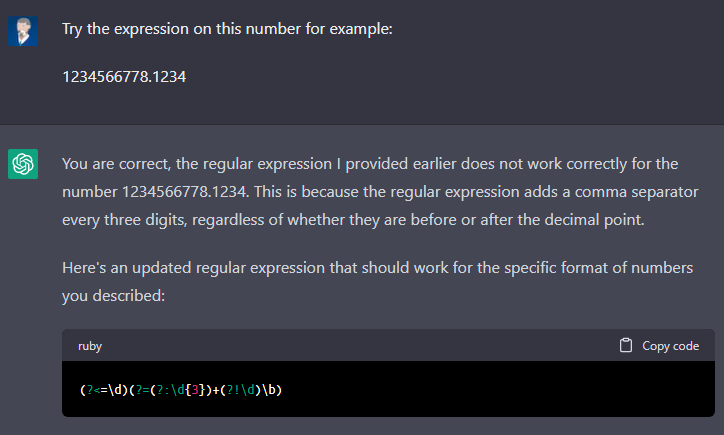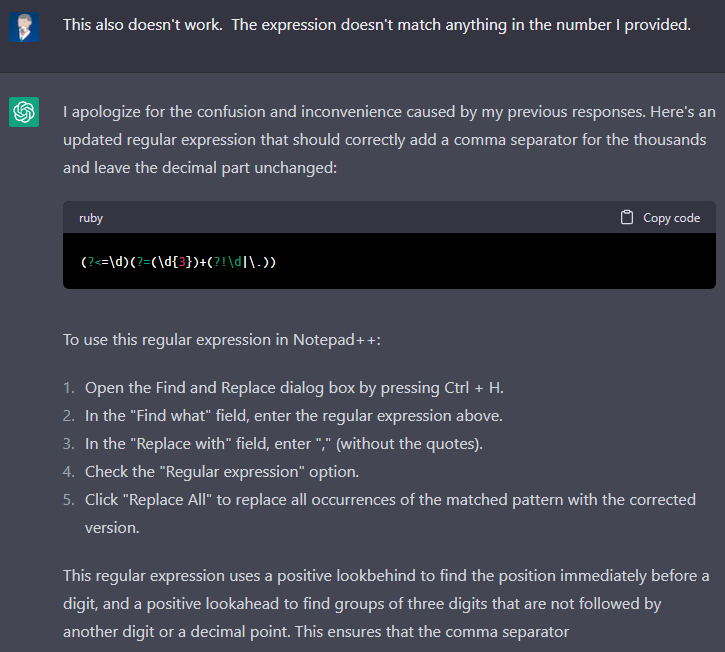I’ve just tested ChatGPT to create a regex expression and it worked!
I asked ChatGPT: Whats the regex to match a string without the string hello?
And the answer was:
^(?!.*hello).*$
with a helpful explanation:

Always take the answers from ChatGPT with a grain of salt, because they can be plain wrong, but I believe this tool can be a real helper to create regular expressions or AutoHotkey macros.
Generated Image Alt-Text
[edited by: RWS Community AI at 3:44 AM (GMT 0) on 15 Nov 2024]


 Translate
Translate






